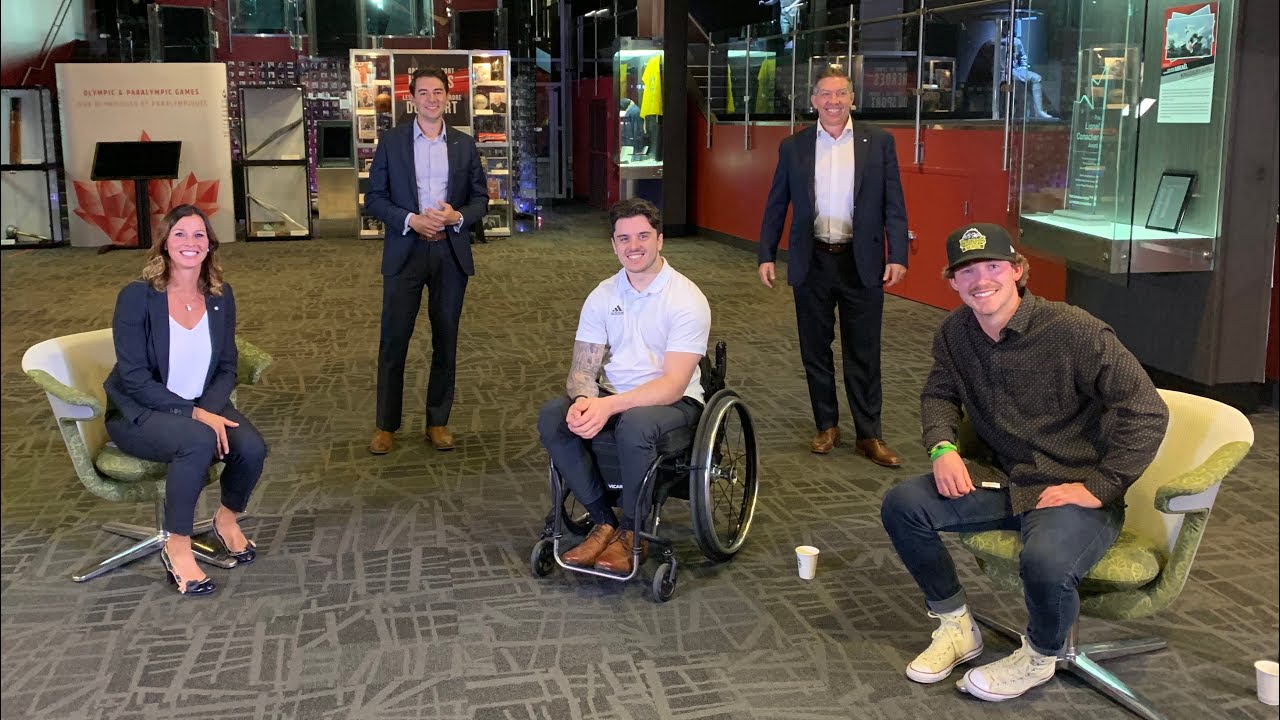Mental Health Resilience Panel Discussion
October 13th, 2020 Panel, Sheldon Kennedy
On September 28, 2020, our co-founder Sheldon Kennedy participated in a panel discussion on resilience and facing adversity in sport, presented in partnership with Sport Calgary and headversity. Moderated by two-time Olympic champion and Sport Calgary President & CEO Catriona Le May Doan, other panellists included psychiatrist and headversity co-founder Dr. Ryan Todd, as well as Ryan Straschnitzki and Tyler Smith, two young athletes who survived the Humboldt Broncos bus crash in 2018.
Mental Health Resilience Panel Discussion – Sport Calgary
The panellists discussed their personal and professional understandings of resilience, which can be understood as the readiness to face adversity. Research from the International Olympic Committee (IOC) on youth athletic development recognizes the importance of developing resilience in young athletes. Psychological stress alone can have both training and straining effects on young athletes; for example, feeling anxious or nervous about an upcoming tournament or competition can be a healthy and normal reaction (Bergeron et al., 2015). However, excessive psychological stress can quickly turn into psychological overload, which can result in young athletes experiencing burnout or leaving sport altogether (Bergeron et al., 2015). Parents and coaches have an important role to play in preventing psychological overload by setting realistic expectations, sharing criticism in constructive and developmentally-appropriate ways, and using training approaches that put the athlete’s well-being first (Bergeron et al., 2015). In addition, parents can play an important role in preventing dysfunctional or destructive responses in young athletes, such as perfectionistic tendencies (Bergeron et al., 2015). This can help young athletes understand that teamwork, having fun, and doing their best are all more important than perfect athletic performances (Bergeron et al., 2015).
This may be especially important for athletes competing in sport as teenagers, a sensitive time period for both physical and psychological development (Bergeron et al., 2015). Coaches and parents can support young athletes in building resilience skills through the teaching of coping techniques, such as goal setting, to help reduce normal fears and anxieties, such as a fear of failure (Bergeron et al., 2015). It is also important to match the level of support and types of coping tools with the level of competition and athletic achievement expected of young athletes (Bergeron et al., 2015).
Coaches should work to create an autonomy-supportive, mastery-oriented sporting climate, where young athletes are encouraged to recognize and understand their own goals and limits (Bergeron et al., 2015). Coaches should seek to build the four Cs- Competence, Confidence, Connection, and Character- in young athletes, by establishing positive training and competitive environments and focusing on the individual needs and long-term goals for performance, participation, and personal development of young athletes (Bergeron et al., 2015). Research has shown that these types of sporting climates result in less stress for young athletes and build more intrinsic motivation, both of which are important tools for building resilience (Bergeron et al., 2015).
We were so inspired to learn from the expertise of each of these panellists, and are thankful to Sport Calgary and headversity for recognizing the importance of having open, authentic conversations about mental health, trauma, and resilience in sport. You can learn more about the panel here.
References:
Bergeron, M. F., Mountjoy, M., Armstrong, N., Chia, M., Côté, J., Emery, C. A., … & Malina, R. M. (2015). International Olympic Committee consensus statement on youth athletic development. British Journal of Sports Medicine, 49(13), 843-851.
